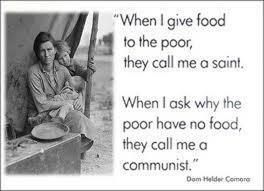
Zack Beauchamp's rundown at Think Progress yesterday is the best I've seen analyzing the bogus meme now being circulated by religious and political conservatives, which claims that the mainstream media have ignored the story of Dr. Kermit Gosnell. For those who may not have followed this story, Gosnell ran an abortion clinic in Philadelphia, and is charged with heinous crimes, including killing and dismembering babies that had just been born, slitting their spines and keeping body parts in jars in his clinic.
As Beauchamp notes, last Thursday, Kirsten Powers wrote an essay for USA Today claiming that the mainstream media have ignored the story and are guilty of liberal bias in doing so. Right-wing religion commentator Mollie Z. Hemingway got in on the act by posting a lengthy statement at her Patheos blog supporting Powers's argument and claiming that the media are "abortion-drenched" and naturally don't want to cover a story that points to the reality of what abortion is all about--killing babies.
But as Beauchamp notes, unfortunately for both Powers's and Hemingway's argument,
. . . the “media blackout” conservatives allege was a fiction. The New York Times ran five pieces on the Gosnell trial before the controversy erupted. The Washington Post ran eight related items before or roughly concurrent to Powers’ column. Dan Amira at New York Magazine finds a similar level of Gosnell coverage on major television news networks.
And as Sarah Posner notes at Religion Dispatches, among those most attentive to the story when it first broke in 2011 were feminist and pro-choice commentators including Tara Murtha in Philadelphia Weekly, Rachel Walden at Women's Health News, and Katha Pollitt for The Nation.
In the last several days, there have been several postings about the media-blackout controversy at the Commonweal blog site, by Paul Moses and Grant Gallicho, with a follow-up posting by Moses reporting on Robert P. George's argument that a pro-life commitment would encourage sparing the life of Gosnell as he is sentenced for his crimes. As might be expected, among those logging in to contribute to the Commonweal discussions are a number of Catholics of the right, including Tom Piatak (aka Thorin), who argue that the mainstream media are in cahoots with an "abortion industry" they consider exceptionally powerful, and that organizations like Planned Parenthood are evil because they are part of the abortion industry.
As well as I can understand the "pro-life" arguments of some of my fellow Catholics like Mr. Piatak, they rest on the assumption that the issue of abortion is of overriding moral importance, and any of us committed to an ethic of life absolutely must engage it as the issue most seriously threatening a strong ethic of life in our culture. I remain unconvinced by this suggestion.
Yesterday in Iraq alone--on the same day in which bombs killed and maimed children (and adults) in a senseless act of horrific violence in Boston--at least 36 people, some of them children, were killed in other senseless acts of violence by bombs. These acts do not diminish the violence of abortion or of infanticide. I do not point to them to play them against the violence of abortion or of infanticide.
But they do appeal to our moral awareness and our consciences, I would maintain, to remind us that the issue of abortion is hardly the sole issue that demands attention when we try to apply a consistent ethic of life in our world today. And for my conscience, they're also reminders that abortion is perhaps not the primary threat to a consistent ethic of life in my world today.
I live in a state in which religious-right movements with which Mr. Piatak and other right-wing Catholics are closely allied are working very hard to prevent the extension of healthcare to children of economically marginal families in my state. This is an issue very close to me geographically, and also one for which I have a particular concern because I know what it feels like and means for my own life to be without healthcare.
I do not want children to have to continue living with the destructive, demoralizing, and health-threatening consequences of lacking healthcare coverage. As someone strongly committed to a pro-life ethic, I want to see everyone with access to basic healthcare. I am also critically aware that there is a link between lack of economic opportunity, lack of basic healthcare, and increasing abortion rates. The latter diminish when economically deprived women have access to education, good jobs and benefits, basic healthcare, and, yes, contraceptive coverage as part of their basic healthcare.
For the life of me--and I use that phrase quite deliberately--I do not understand the "pro-life" approach of some of my fellow Catholics of the right who simultaneously urge me to consider abortion the biggest threat of all to an ethic of life in the world in which we live today, and who want me to fight to deny contraceptive coverage and even basic healthcare to women in need and to their children.
For that matter (and, again, for the life of me), I also do not understand these same Catholics' bitter resistance to recognizing my humanity and that of other gay and lesbian human beings, and their same bitter resistance to caring about children being raised by same-sex couples. I don't see much life--much commitment to a meaningful ethic of life--in the "pro-life" stance taken by my fellow Catholics of the right.
And I intend to keep my distance from that stance as a result. For the life of me, and for the life of others . . . .

